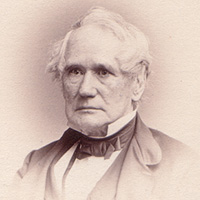A Quote by Milton Friedman
The benefits of a tariff are visible. Union workers can see they are "protected". The harm which a tariff does is invisible. It's spread widely. There are people that don't have jobs because of tariffs but they don't know it.
Related Quotes
What [Donald] has put up for question is this idea of tariffs. Initially, he said if China won't stop taking advantage of us and manipulating their currency, then I will put tariffs in place. That spooked everybody because if you charge China a fee and an extra tariff for anything they bring into the United States, what's going to happen is that companies carrying those goods are going to raise prices. It's going to be expensive for people. People got scared of that, but then he walked that [idea] back. I don't think anybody is expecting heavy tariffs on anything.
Many people who have lost out in the last few decades voted for Trump. Trump will have a difficult time turning them into winners. The jobs of these people are not at risk because of Chinese or Mexican workers, but because of robots and computers. And new trade barriers and higher tariffs are not going to change that.
People hired by government know who is their benefactor. People who lose their jobs or fail to get them because of the government program do not know that that is the source of their problem. The good effects are visible. The bad effects are invisible. The good effects generate votes. The bad effects generate discontent, which is as likely to be directed at private business as at the government.
Everything we see hides another thing, we always want to see what is hidden by what we see. There is an interest in that which is hidden and which the visible does not show us. This interest can take the form of a quite intense feeling, a sort of conflict, one might say, between the visible that is hidden and the visible that is present.
That's an interesting paradox to think about. Make it legal and it's no good. Why? Because as long as it's illegal the people who come in do not qualify for welfare, they don't qualify for social security, they don't qualify for the other myriad of benefits that we pour out from our left pocket to our right pocket. So long as they don't qualify they migrate to jobs. They take jobs that most residents of this country are unwilling to take. They provide employers with the kind of workers that they cannot get. They're hard workers, they're good workers, and they are clearly better off.

































